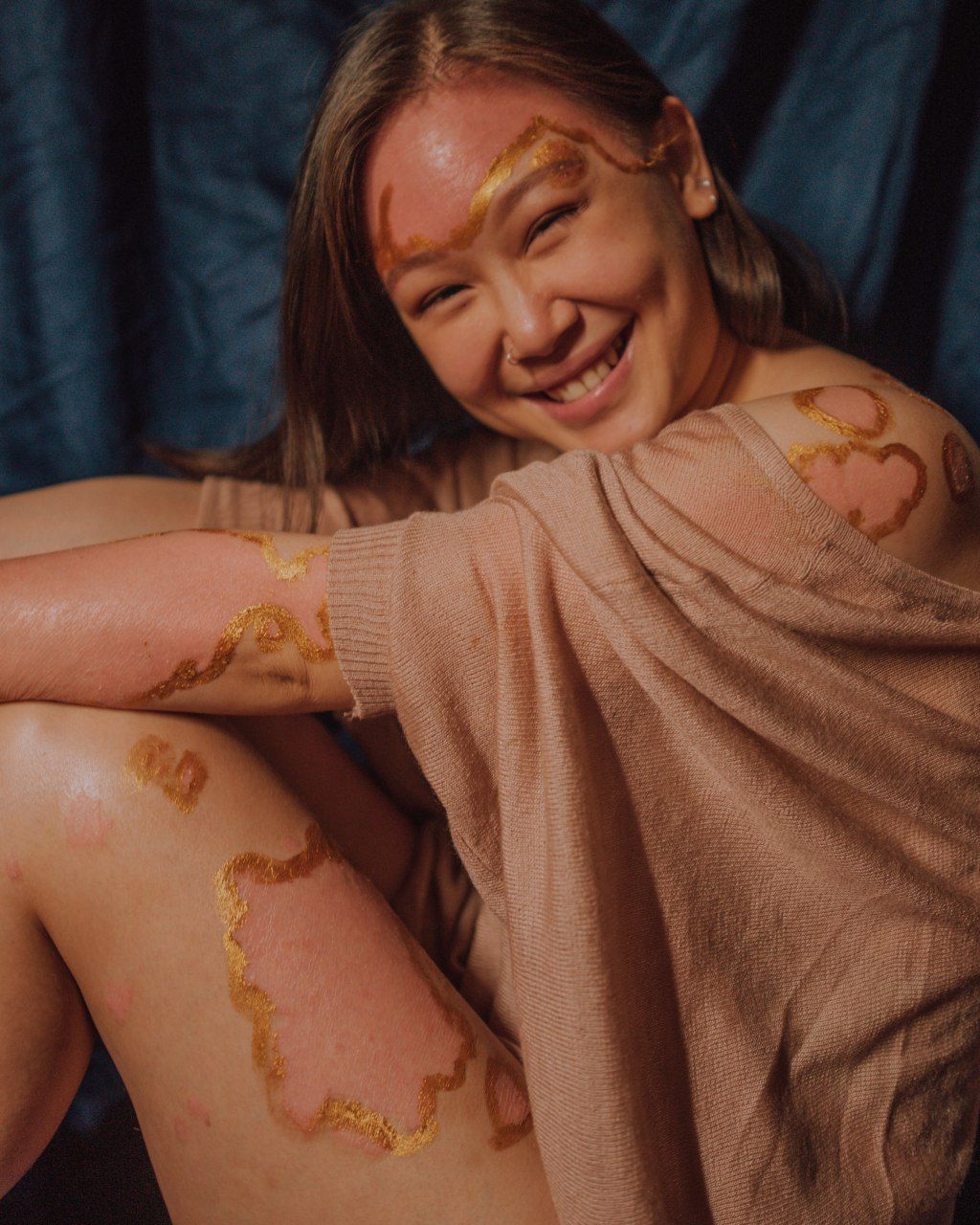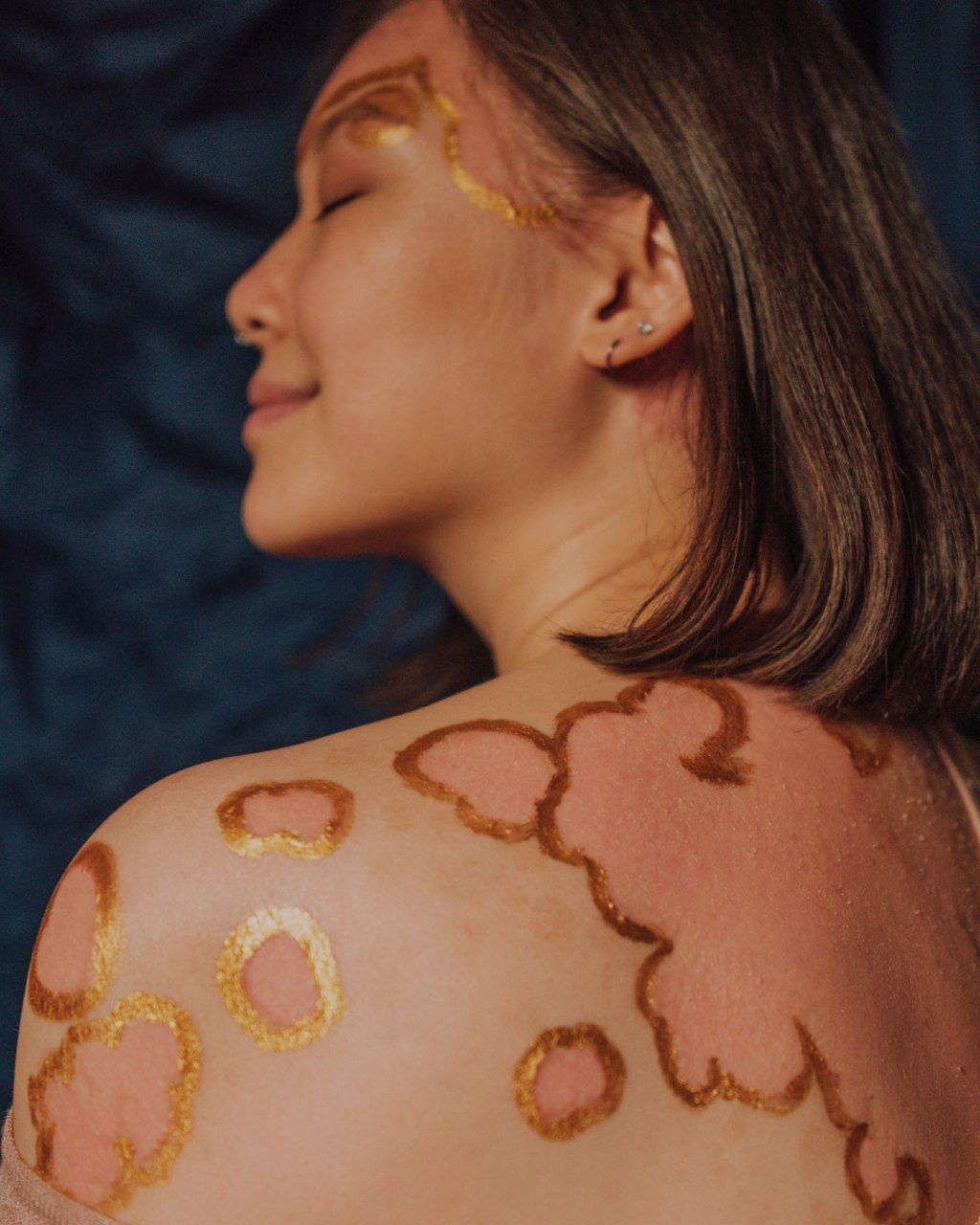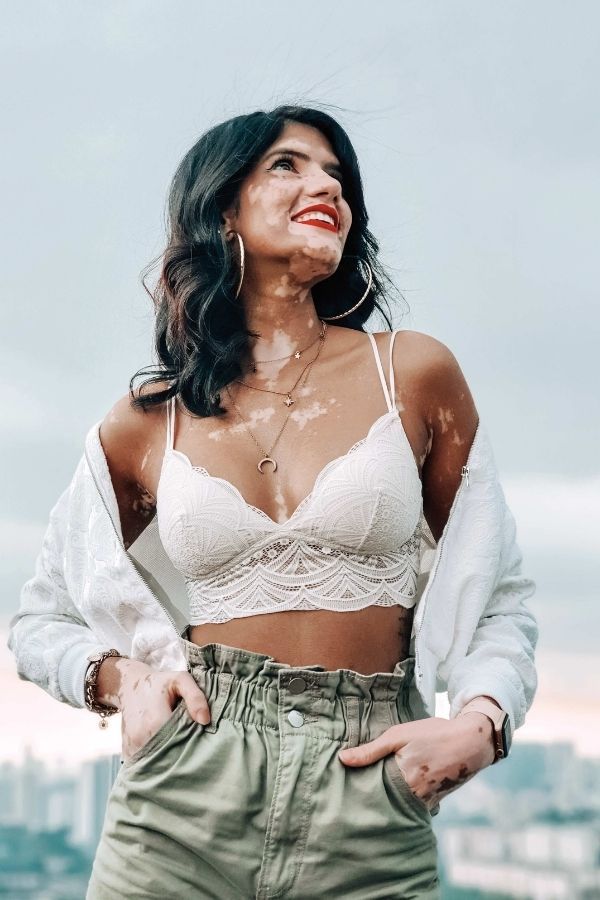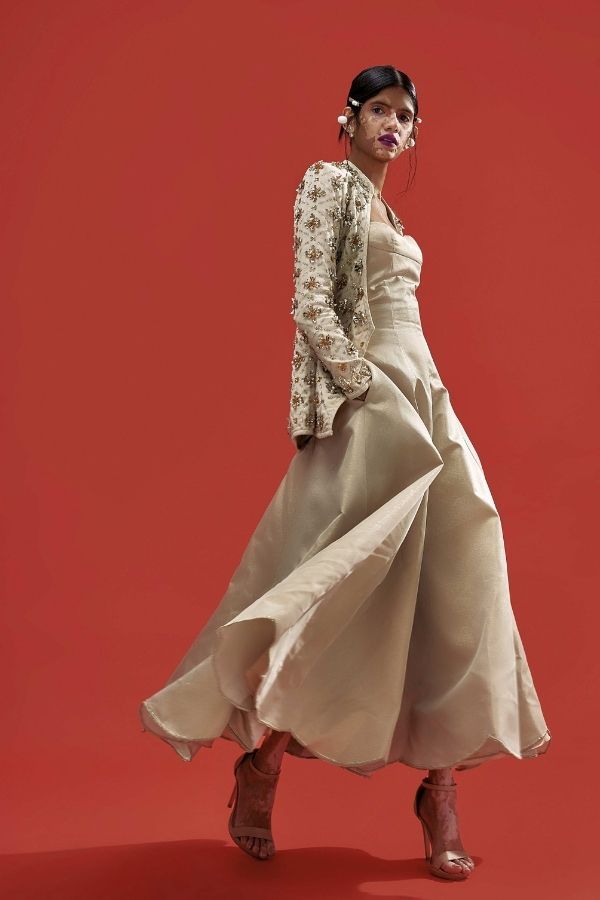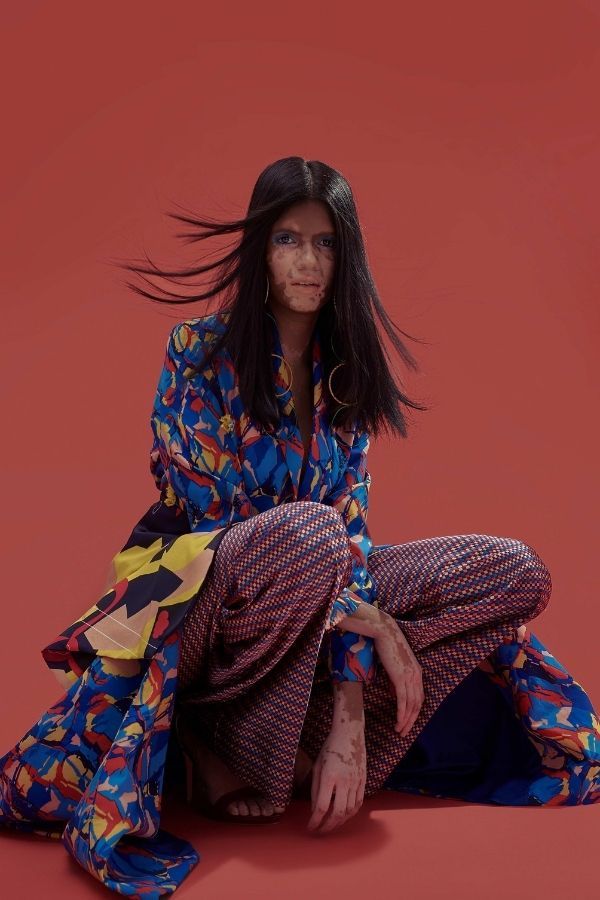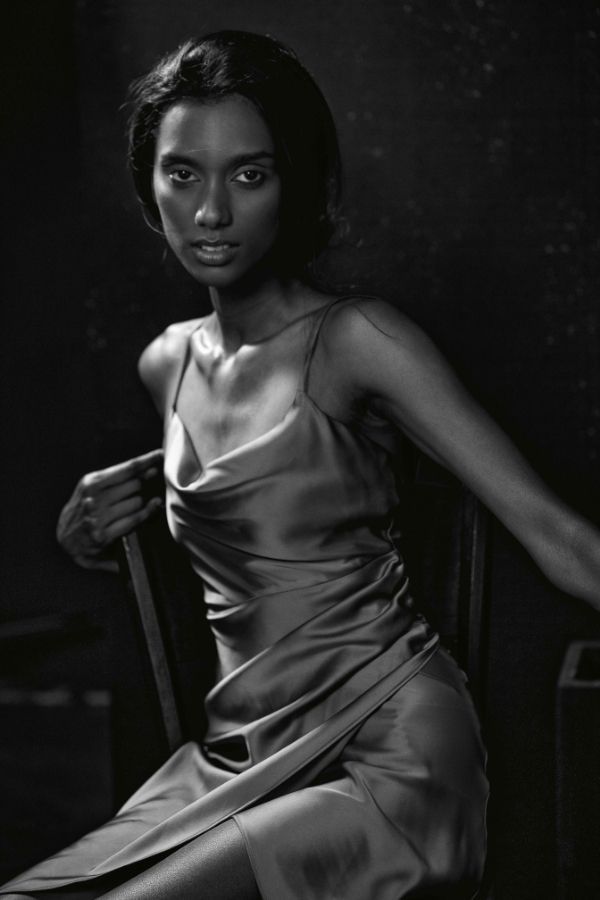By the time Wong turned 25, it was 2018 and her 11th year of living with psoriasis—though she describes it as one of the lowest points in her life, it was a major turning point as well.
“There was this huge brand that wanted to look for a ‘different’ kind of beauty,” she shares. “It took a lot of convincing from friends and family, but I eventually decided to take a chance on myself. Then, when I finally came to the shoot, the people there asked if they could see my skin, because I was still covered up with long sleeves then. And when I finally worked up the courage to show myself, one of them went, ‘wah, that is actually quite serious’. I didn’t get called back after.”
Frustrated and hurt, Wong came home, and in a fit of rage, took out her phone, and promptly posted her first ever photo on social media that revealed what her skin looked like. “I was terrified,” she says, “but I was also so angry. If the world wasn’t willing to give a more compassionate and empathetic space for people who looked different, then I would.”
From thereon, she got the ball rolling, launching a body positivity campaign called Project Naked, a series of stories that not only detailed Wong’s own account with psoriasis but also never-before-seen photographs of her skin. Within less than a month, the response Wong received was overwhelmingly positive, which hardened her resolve and got her to create Safe Space, an online support group for patients with psoriasis that began in Malaysia, but eventually branched out to international waters.
See also: Dermalogica's Master Instructor On Acne And Skin Acceptance
Wong actively engages with her fellow psoriasis patients online, and hopes that her social media platforms will be able to not only better inform people about the autoimmune disease, but provide better tools for people with the condition to care for themselves holistically. “I’ve had more than a decade’s worth of experience meeting doctors of all kinds,” says the activist. “I tried all sorts of treatments and have been met with varying degrees of side effects afterwards. We have so many great medical innovations out there, but we frankly aren’t equipped with the knowledge to better guide people with chronic conditions—nor do we prioritise them at all.”
